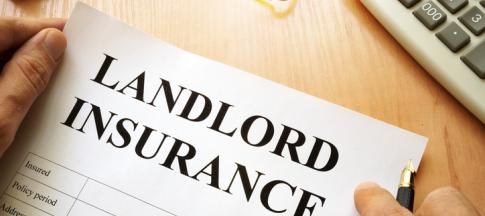
Whether you’re a landlord or a typical homeowner, it’s important to know whether your property is a leasehold or freehold.
Read on to learn the differences between these two property types and how they affect you as a landlord.
What is a freehold property?
The term ‘freehold’ means that a property and the land it’s built on are both owned by the buyer. There’s no fixed time limit that you own this property for.
Most houses on the market are freehold, but there can be exceptions. If a house is bought through a shared ownership scheme, it will likely be a leasehold property because there’s multiple owners, not one single owner.
What is a leasehold property?
The term ‘leasehold’ means that a property is permanently owned by someone else (the freeholder), but the buyer leases it from the owner for a fixed period of time.
The leases on leasehold properties are often very long, usually ranging from 99 to 999 years (though they can be shorter if the lease has already been going for a while). These time periods may seem silly as they’re longer than the average human life, but they’re there to make sure that the buyer can own their leasehold property indefinitely during their lifetime.
Flats are often leasehold because they’re part of a block of flats that’s owned by a freeholder. Many apartment buildings often have several owners, or several freeholders.
Buying a leasehold property isn’t the same as renting a property. A tenant lease doesn’t give the tenant any ownership rights over a property, whereas a leasehold gives the buyer (in this case the landlord) certain ownership rights.
For instance, a tenant often can’t make permanent changes to the flat they’re renting, like painting walls, switching out furniture or fitting new carpets.
Someone who’s bought a leasehold property probably will be able to make these changes, but they might be restricted on larger renovations (e.g. extending the balcony or knocking down walls) based on the freeholder’s rules and building regulations.
Leasehold vs. freehold ownership rights
Both leasehold and freehold contracts give you some level of ownership, but they’re not the same as each other.
With a leasehold property, you don’t own the land that the property is built on. As a landlord, this means that there are some changes you can’t make to the property.
If you buy a leasehold property to rent out, you’ll also need to take care of ground rent and service charges.
Some landlords add this to the rent, but ground rent and service charge can come to thousands of pounds a year, which may be off-putting to tenants if it drives the rent up a lot.
Can landlords rent out freehold and leasehold properties?
Yes. A landlord can buy and rent out a freehold or a leasehold property. A lot of tenanted properties are flats, and it’s also common to rent out whole houses.
It’s important to know whether a property you want to buy is freehold or leasehold before committing to anything.
Is my insurance affected by the type of property I own?
Your landlord insurance may be affected by whether you own a leasehold or freehold rental property.
This is because certain kinds of cover you need for a freehold property may not be needed for a leasehold property.
For example, let’s say you own a leasehold flat. The freeholder of the block of flats likely has buildings insurance.
Their insurance could cover costs for things like third party liability and repairs to permanent fixtures.
However, you’ll likely be responsible for things like floorboards, plasterwork and plumbing as the leaseholder.
It’s best to check with your insurer whether your insurance changes based on the kind of property you own. You should also check what the freeholder’s buildings insurance covers.
Can I get landlord insurance for leasehold and freehold properties?
Yes. Most landlord insurance policies cover leasehold and freehold rental properties, but make sure you check this before committing to anything.
Are all flats leasehold?
Most flats are leasehold in the UK.
But there are some cases where residents can group their funds together to buy a block of flats (usually a small block rather than a large apartment complex). But the ownership is still shared, and there will be multiple freeholders, not just one.
Do I need contents insurance for a leasehold property?
If you want to protect anything you own in your tenanted leasehold property, it’s important to have landlord contents insurance.
It’s the tenant’s responsibility to get contents insurance for anything they own that they’ve brought to the rental property.


